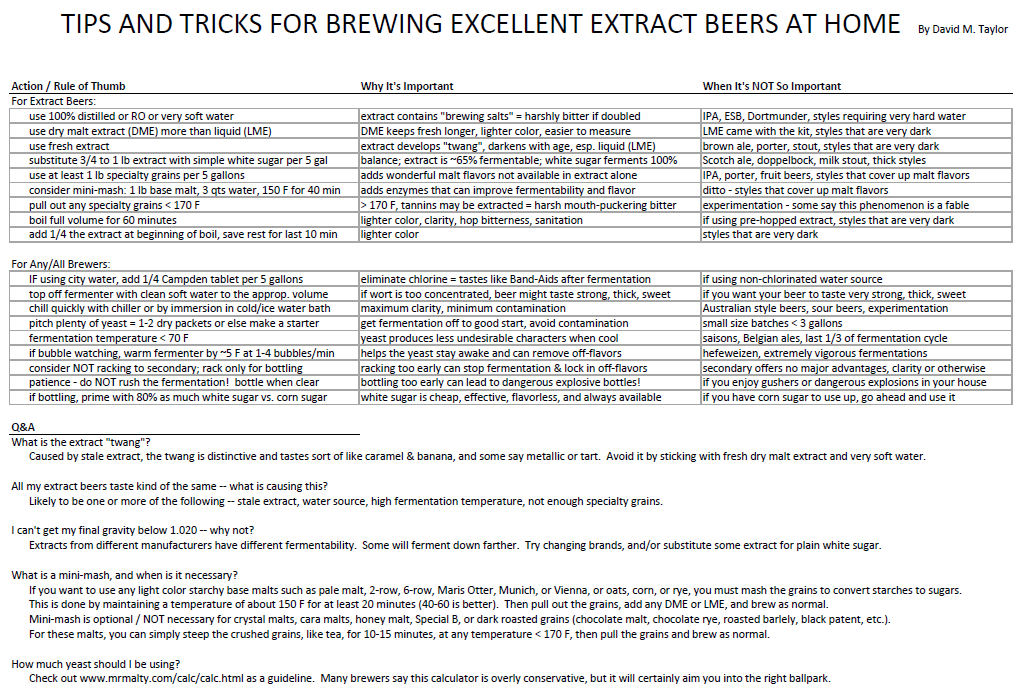Hi all,
I’ve made 4, 5 gallon extract brews since I’ve started brewing and have yet to make a beer that I actually enjoy drinking. Every time they taste just a bit off from what I think they should taste like and aren’t really enjoyable to drink more than one of. I made sure that I am cleaning and sanitizing everything as much as possible and follow the directions to a T. I’ve reached the conclusion that I may need to spend some money on more equipment to get better tasting beer but am looking for your help to decide what is needed most since I don’t want to drop a bunch of money at once. I’ve made two lists below of the equipment I have and then what I think may upgrade my game. Let me know your thoughts!
Current equipment:
1) Brew Share Enjoy Homebrew Starter Kit
2) bottle tree
Wish list:
1) fermentation chamber
2) wort chiller
3) kegging equipment (bottling is terrible)
4) upgraded brew kettle (probably a mega pot from NB)
5) hop spider
Anything else you all can think of?
I’ve made 4, 5 gallon extract brews since I’ve started brewing and have yet to make a beer that I actually enjoy drinking. Every time they taste just a bit off from what I think they should taste like and aren’t really enjoyable to drink more than one of. I made sure that I am cleaning and sanitizing everything as much as possible and follow the directions to a T. I’ve reached the conclusion that I may need to spend some money on more equipment to get better tasting beer but am looking for your help to decide what is needed most since I don’t want to drop a bunch of money at once. I’ve made two lists below of the equipment I have and then what I think may upgrade my game. Let me know your thoughts!
Current equipment:
1) Brew Share Enjoy Homebrew Starter Kit
2) bottle tree
Wish list:
1) fermentation chamber
2) wort chiller
3) kegging equipment (bottling is terrible)
4) upgraded brew kettle (probably a mega pot from NB)
5) hop spider
Anything else you all can think of?






![Craft A Brew - Safale S-04 Dry Yeast - Fermentis - English Ale Dry Yeast - For English and American Ales and Hard Apple Ciders - Ingredients for Home Brewing - Beer Making Supplies - [1 Pack]](https://m.media-amazon.com/images/I/41fVGNh6JfL._SL500_.jpg)



















































